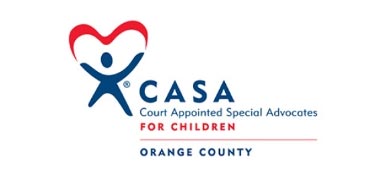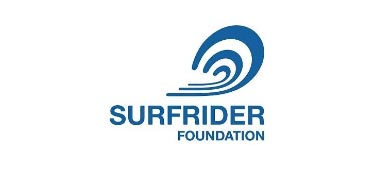
Your child’s eighteenth birthday is a significant turning point, not just in their life, but in yours as a parent. Although the milestone signifies graduation from the more practical aspects of parenting like changing diapers, kissing boo-boos, and driving to and from sports practices, your work as a parent is far from finished. The challenges of parenting don’t disappear; they evolve, which means your approach needs to evolve as well.
As we all know, just because a child is legally an adult does not mean they are ready to handle the complexities of living as a full-fledged adult. As your child prepares to head out into the world, there are several critical topics to discuss with your adult children.
By agreeing to execute a few simple yet critical documents, you can create a reasonable safety net to give you both peace of mind. Here are four documents you should help your children prepare.
Documents such as a health care power of attorney (also called advanced health care directives) and financial power of attorney (also called a durable power of attorney) will ensure you continue to have the ability to step into your children’s shoes legally if the cannot make decisions for themselves due to temporary or permanent disability. These are the powers of attorney documents that spring into activation upon changed circumstances, not the type that shifts power for some period of time due to vacation, etc.
By signing this type of powers of attorney in advance of any problems or emergencies, your child is choosing to give you the legal authority to handle specific issues in specific situations.
Although the most common scenario for a health care power of attorney involves helping an elderly parent, there are numerous scenarios where this document is invaluable for a young or even an older single adult child. A health care power of attorney is a proxy that allows a designated agent (which would be you as the parent) the ability to make decisions about your child’s health care. For the majority of states, your power won’t kick in unless your child is physically or mentally is incapable of making their own medical decisions, but the language varies by jurisdiction.
If your child goes to school out of state, it’s common sense to have a health care power of attorney from both states. Some health care professionals may be hesitant to accept an authorization form they don’t recognize and have known to be somewhat picky for fear of stepping outside the boundaries of the law, regardless of your clear desire to help.
Another critical component of a health care power of attorney is the ability to treat not just physical ailments, but mental health problems as well. Mental health issues often emerge and manifest during a child’s college years, and unless you have your ducks in a row legally, you could easily find yourself on the outside looking in on your child’s mental health treatment. Although neither you or your child may foresee any mental health issues, keep in mind that few people do foresee them until it is too late. It is extremely important to know that once the child loses the ability to sign a power of attorney (or once they disagree that it should be signed), it is too late and a conservatorship of the person or estate may be required for you to legally step into your child’s shoes. This is a court process that is costly and takes time.
A financial power of attorney is a way to allow parents to manage their child’s finances, with lots of flexibility based on the specific situation. Depending upon the wording, a financial POA is either active immediately or at some point in the future. The document can authorize you to act on your child’s behalf in all financial matters, or in limited circumstances related to banking, lending, real estate, estate planning document execution, etc. If a child has an interest in any family business or other investment, this tool can be essential to make transfers and execute business documents in a child’s absence at college or otherwise.
A financial power of attorney can be useful in many situations where a child is living somewhere away from home. In case of injury or illness, you can step in and make sure your child’s financial obligations are handled on their behalf. It also makes transferring legal title to property such as bank accounts, vehicles, or real estate far easier and more convenient. Unless limited by the language of the document itself, financial power of attorney remains in effect unless it is revoked or changed.
A HIPAA authorization allows medical professionals to discuss a person’s medical condition with whomever the person chooses. Without this authorization, medical privacy laws forbid disclosing information to anyone, even the parent of a legally adult child.
Your children may be reluctant to share private medical information with you, but the law allows them to set limits on how much or what type of information you can receive. For example, if your daughter has asthma, she can authorize you to obtain information as to whether or not she’s had an asthma attack, but not whether she is being prescribed birth control pills. This flexibility is essential in balancing your child’s medical well-being with their reasonable right to privacy.
In addition to a standard HIPAA authorization form, parents need to check whether your child’s college has a specific form of their own. In a moment of crisis and confusion, you don’t want to be worrying about whether you and your child fill out the proper paperwork.
The Family Educational Rights and Privacy Act, also known as FERPA, mandates that with very few objections, students over the age of eighteen must give written consent before educational records including grades, transcripts, and disciplinary records can be shared with parents. Even though colleges usually notify parents of this requirement, be sure to get this document signed before your child leaves for college or risk not knowing if your child changes their major to partying.
Turning eighteen and going away to school can be exciting and nerve-wracking for your child and you as well. By taking some necessary precautionary steps, you can alleviate some of the stress and focus on the future with much-needed peace of mind.
Disclaimer: This article is intended to provide a general summary of laws in the State of California and should not be construed as a legal opinion nor a complete legal analysis of the subject matter. Noelle Minto is an attorney at NM Law, APC in Tustin, California, a law firm specializing in Trusts & Estates and Business Transactions.
Testimonials
Charities We Support
We dedicate pro bono time, volunteer services, and a percentage of our gross revenue to these organizations. In 2023, we sponsored a refugee family of five to come to the United States and start a new life.
Each year our law firm decides as a group which charities to assist with our time, money, and expertise. Please feel free to click on any of the charities below and make a donation of your own.


















